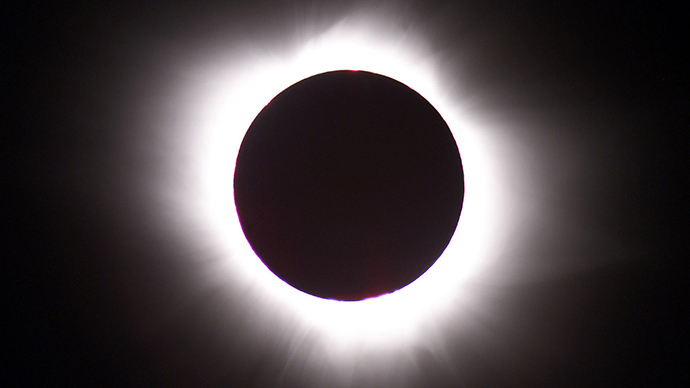Total solar eclipse August 2017 news: Everything to know about where, when and how

One of the most anticipated events this year is the first total solar eclipse that the United States will experience from coast to coast. Nature's spectacle is not expected occur again until 2024. Thus, to prepare for this event, the National Aeronautics and Space Administration (NASA) answered a few frequently asked questions to guide those anticipating the 2017 total solar eclipse.
According to NASA, the total solar eclipse will happen on Aug. 21. In contrast to all other solar eclipses that the United States has experienced and witnessed, this event will plunge majority of the Americas in momentary darkness that will not last for more than few minutes. In that short duration, retired NASA astrophysicist Fred Espenak shares a few things to expect from the total solar eclipse.
"It's a visceral reaction. You feel something in the pit of your stomach like something is wrong in the day, something is not right. As totality begins, and the shadow sweeps over you, the hairs on the back of your neck and arms stand up. You just go, 'wow,'" shares Espenak, in an interview with TIME. He further describes that plants will react to darkness the way they would during the night. Flowers would tend to close and as for animals, there could be sounds people would hear during nighttime, such as crickets.
NASA reports that the major town and cities with a front seat for the upcoming total solar eclipse are the following: Idaho Falls, Idaho; Kansas City, Kansas; Bowling Green, Kentucky; St. Joseph and St. Louis in Missouri; Grand Island, Lincoln Nebraska; Corvallis, Albany and Lebanon in Oregon; Nashville, Tennessee; Greenville and Columbia in South Carolina; and Casper, Wyoming.
To know when the exact time the eclipse will be visible in a specific area, NASA provides the information here. NASA further reminds people to never look directly at the sun as it can be harmful. Instead, it would be safer to look up the museums and planetariums in respective areas as they would usually hold events and viewing for eclipses, in general.
The next solar eclipse will happen in July 2019 and it will visible from Argentine and Chile.











